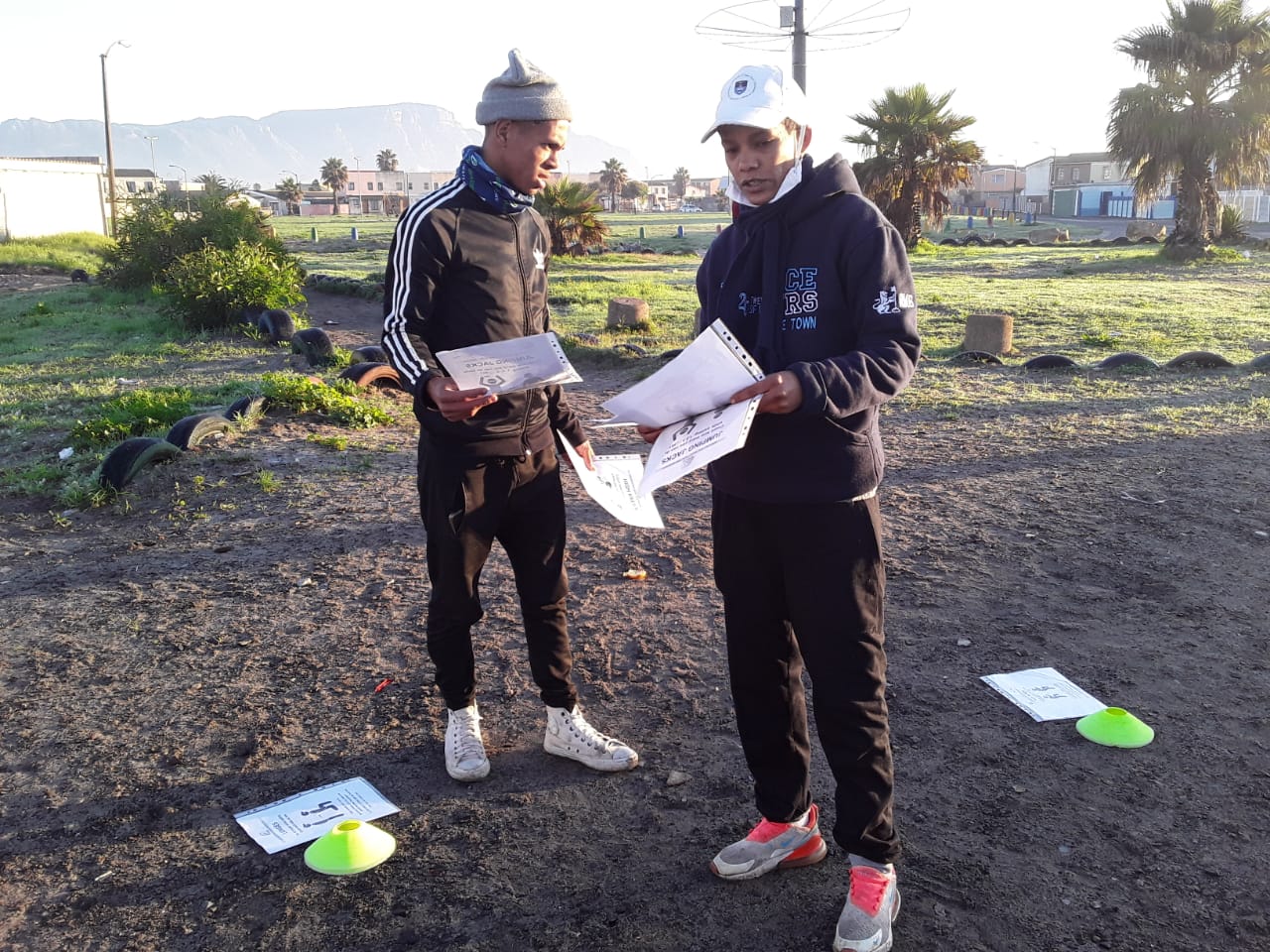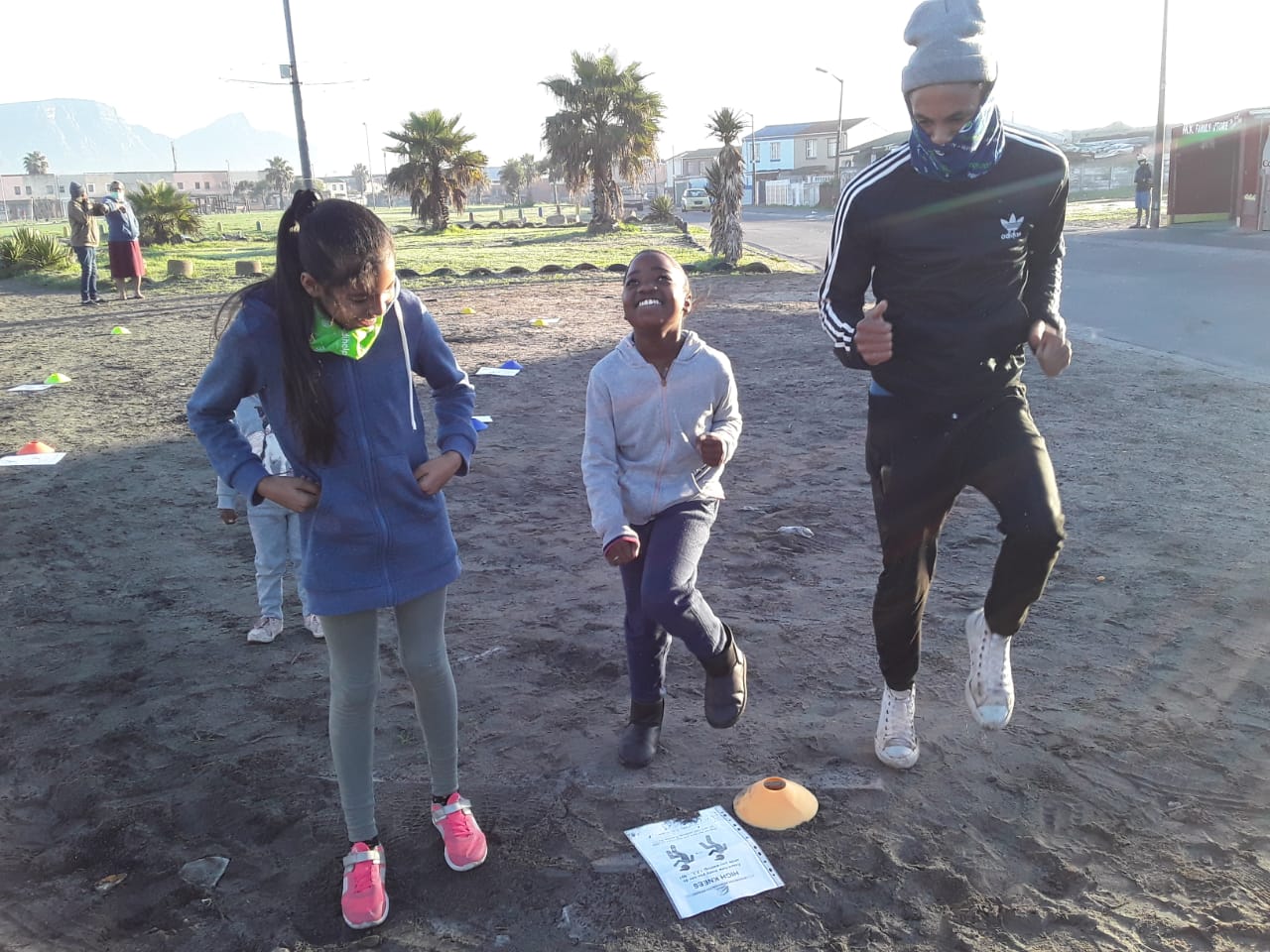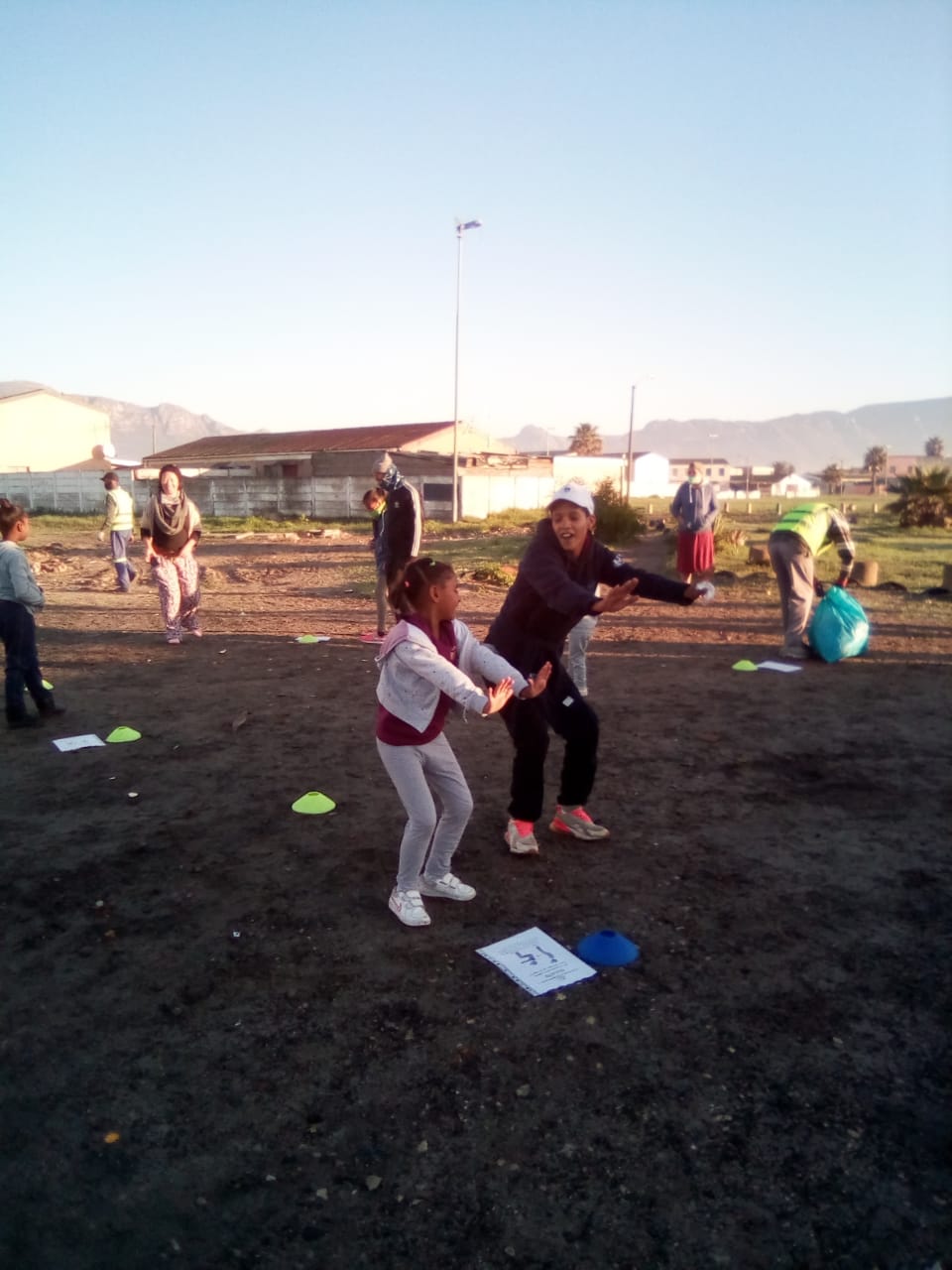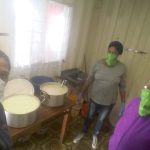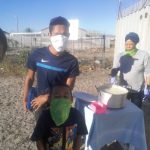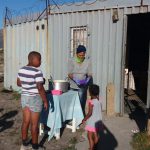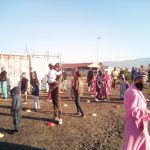South Africa, for the first time in its history, had to lockdown the country in March 2020 due to the outbreak of the CoronaVirus, which was first identified in December 2019, in the city of Wuhan, in China. This affected all industries in many countries and many organisations had to pause their activities for the duration of the different levels of lockdown. As humanitarian work had to continue, many NGOs / NPOs were encouraged to continue operating using different strategies, which adhered to lockdown regulations. PlayHandball was no different. All sport activities came to a halt. As from the beginning of April (and for 26 weeks therefrom) PlayHandball supported families (in-need) with Corona-Aid-Packages, which included food parcels for both South Africa and Kenya where the core beneficiaries are.
PlayHandball fundraised money through various platforms in order to be able to buy food parcels, which included also hygienic products such as soap or a mask, and a fitness flyer to do exercises at home while in lockdown. In total, we handed out 168 Corona-Aid-packages in South Africa (64) and Kenya (104). 20 of these packages were received from Community Chest in Western Cape, South Africa. PlayHandball’s fundraising organisation in Germany was able to raise 3791.61 EUR. Besides private donations via Betterplace.org, One.Team in Berlin (Germany), TVB Stuttgart, Handball.Inspires, and “Share & Play”, an organisation from the former Spanish national player Carlos Prieto, supported the aid project.
Apart from the Corona-Aid-Packages, PlayHandball also supported a Porridge Kitchen in Seawinds / Lavender Hill, Cape Town, South Africa. In this community, ahead of lockdown, handball was played at four schools. Historically, Lavender Hill is a disadvantaged community situated in the Cape Flats of Cape Town. It is popularly known for having structural challenges. The youth most likely get involved in gangs and other anti-social behaviours, as there is a lack of role-modeling in the community. The porridge kitchen became a safe haven for the youth and their families, as it made them feel included and ‘seen’.
Lavender Hill Coach La-Toyah Dreyer sometimes took the youth on a run on certain mornings and afternoons. Between her and Coach Lino´, they made queuing for the porridge quite exciting by introducing – with our help and guidance – small physical coordination exercises. “It was great to see how everyone enjoyed the exercises.” explains Chery Abrahams. “Even the old ones had fun trying out to stay for one minute on one leg. That is not as easy as it sounds.” Chery, before the lockdown, co-ordinated the after school programme in the four schools. She also initiated (with the outbreak of the pandemic) the porridge (food) kitchen. Through this initiative, porridge was served on weekday mornings 5 times a week to between 150 and 250 people. Lots of children received a warm porridge meal in the morning. And whenever there were extra available funds, there would also be lunch served approximately 2 to 3 times a week.
“When schools were closed and all sporting activities were stopped, we at PlayHandball did not want to stand idly by.” explains Nicola Scholl (founder of PlayHandbal) the motivation behind the initiative. “We wanted to continue to support the children and young people in our partner programs.Instead of handball and education, we decided to support them for a while with Corona aid packages. Because this exact basic care was the greatest need in the communities at that time.” says Nicola.
To this day, the situation has not normalized in most of the communities we work in. However schools have reopened. So at least basic care for the children is guaranteed. PlayHandball now focuses more on it’s core topics such as handball and social competence programs and the training of coaches in the partner communities.
In this regard, PlayHandball also hosted online courses in September and October and reached participants from Kenya, South Africa, Rwanda and Zimbabwe. Again, the aim was to continue keeping handball alive, even during this deadly pandemic. Participants found these online courses really useful and education, as some people felt restless not being able to do physical exercises with their youth.
- Porridge Kitchen in Seawinds
- Porridge Kitchen in Seawinds
- Porridge Kitchen in Seawinds
- Porridge Kitchen in Seawinds
Text: Sim Mahlanyana (PHZA)

